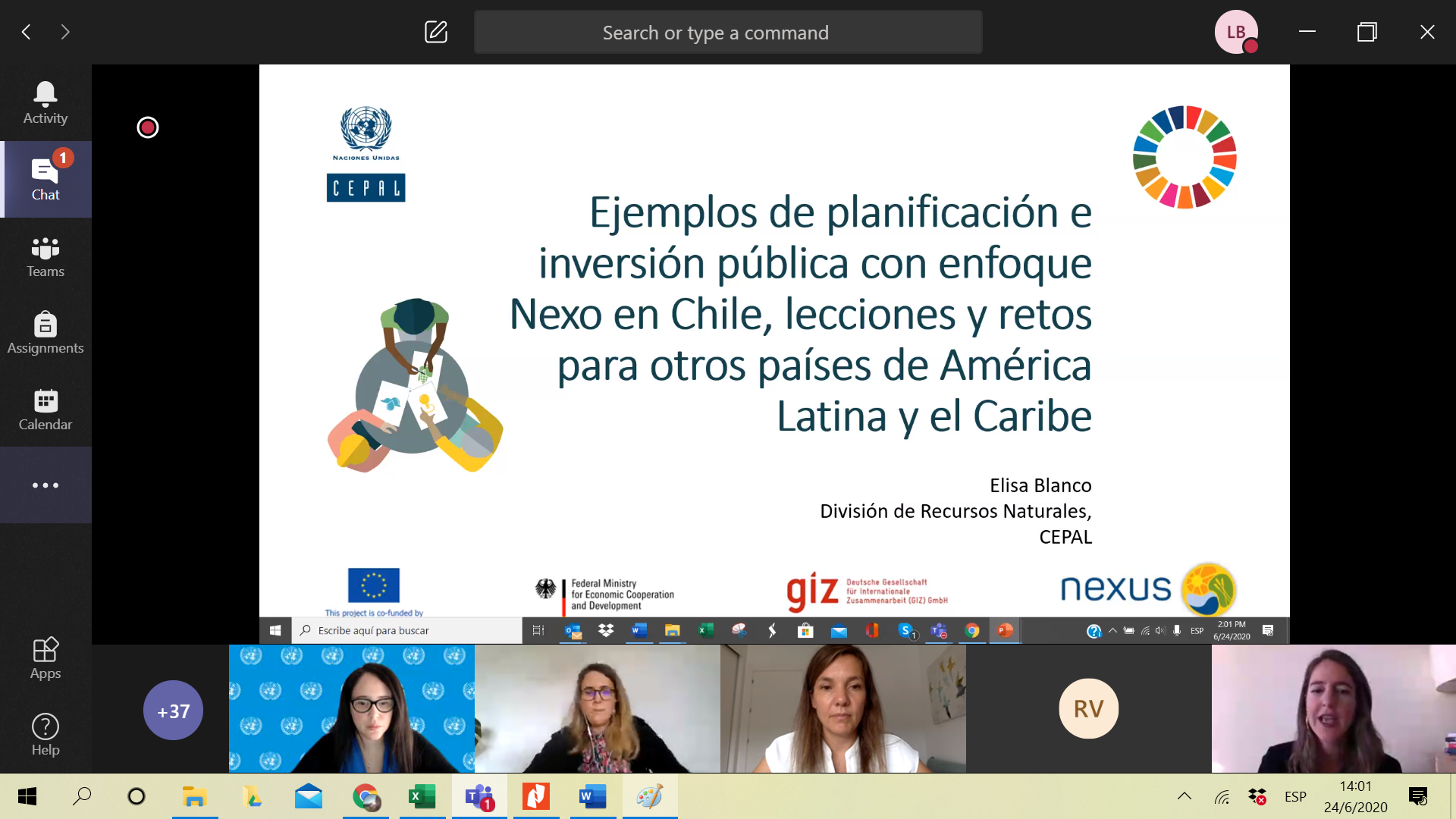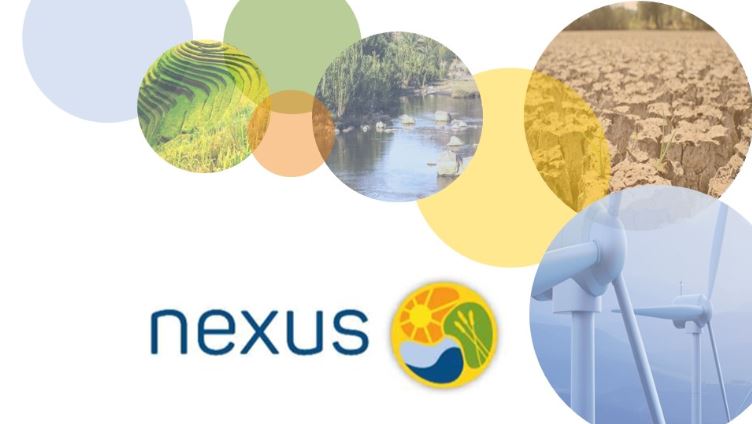Virtual forum "Water-energy-food nexus: lever to achieve sustainable development"
Work area(s)
Teaser
On July 31, 2020, the virtual forum "Water-Energy-Food Nexus: a lever to achieve sustainable development" was held, which was part of a series of interviews called "Talk to Inspire" that was organized by the organization Mexico Actua and Instituto Tecnológico Autónomo de México (ITAM). The event had the participation of the President’s Office of Mexico, ECLAC and GIZ.
Event information

Date
Event type
Participation
The virtual forum had a panel structure and began with the welcoming words of Marina Betancourt, Program Director of the ITAM program; and Lorena Macías, General Director of México Actúa, who introduced to the topic and moderated the panel.
The first intervention was done by Antonio Levy, Regional Coordinator for the Nexus Dialogue in Latin America and the Caribbean, who presented "What is the relationship between Nexus and the SDGs?". He talked about the origins of the Nexus program and are the main advances in the region. He provided concrete examples of the relationship between the Nexus and SDGs 2, 6 and 7, such as the reuse of wastewater in the agricultural sector, the use of energy in water extraction and the production of bioenergy. He said that there is a direct relationship between the Nexus and SDGs 2, 6 and 7, but the Nexus is also indirectly linked to many other SDGs.
The second presentation "How is the Nexus approach implemented in Latin America and the Caribbean?" was conducted by Lisbeth Naranjo, Consultant of the Division of Natural Resources of ECLAC, who spoke about the "Methodological Guide: Design of actions with focus Link between Water, energy and food for the countries of Latin America and the Caribbean. ”This document aims to assist decision-makers in the adoption and evaluation of the Nexus approach to policies, plans, programs and projects in the sectors of water, energy and food The guide consists of four phases i) Diagnosis; ii) formulation; iii) Planning and implementation, and iv) Monitoring and evaluation. It also includes a constant evaluation throughout the phases, responding to criteria of relevance, coherence, effectiveness and efficiency. The guide offers a set of methodologies and case studies that practically expose the benefits of adopting the Nexus approach. Lisbeth stated that the Nexus approach shares the same logic as the 2030 Agenda by pursuing the accomplishment of multiple objectives simultaneously and, therefore, represents a catalyst for achieving the SDGs.
Gemma Santana, in charge of the 2030 Agenda in the President’s Office of Mexico, talked about "The 2030 Agenda, the SDGs (2, 6 and 7) and their transversality". In her presentation, Gemma stated that there are several challenges to include the 2030 Agenda roadmap in the main policies of Mexico. However, several advances have been made, she presented important actions that are being developed at the sub-national level, as well as the areas of work planned for the accomplishment of the 2030 Agenda. She highlighted the need of efforts to achieve an alignment between the SDGs and the need to addressing such actions in a systemic way, due to the intersectoral nature that exists between the SDGs. Since the avhievment of some objectives is directly related to the achievement of others. Co-benefits associated with an integrated approach and the need to achieve economic and social development were also discussed.
10.30 - 10.31. Opening. (ITAM)
10.31-10.35. Panellists presentation and introduction. (Lorena Macías)
10.35 - 10.45. 2030 Agenda, the SDGs (2, 6 and 7) and their transversality. (Gemma Santana)
10.45 - 10.55. What is the relationship between the Nexus and the SDGs? (Antonio Levy)
10.55 - 11.05. How is the Nexus approach implemented in Latin America and the Caribbean? (Lisbeth Naranjo)
11.05 - 11.25. Questions and answers. (All, moderated by Lorena Macías)
11.25 - 11.30. Conclusions and closing. (Lorena Macías and ITAM)
Related content

Webinar on Public Investment Planning with a Water-Energy-Food (WEF) Nexus Approach
The Natural Resources Division of ECLAC, in collaboration with ILPES and GIZ, presented to the Network of National Public Investment Systems (SNIP) of Latin America and the Caribbean methodological…

Third Nexus Virtual Forum. Integrated Watershed Management under a Nexus Perspective.
Third Nexus Virtual Forum for Latin American and Caribbean to discuss the main regional challenges of Integrated Watershed Management from a nexus perspective.

Second Nexus Virtual Forum. Photovoltaic Solar Irrigation Systems in Latin America and the Caribbean
Second Nexus Virtual Forum for Latin American and Caribbean countries on experiences and challenges of photovoltaic solar irrigation systems
CEPAL presentó guía metodológica para la adopción del enfoque Nexo en sectores de agua, energía y alimentación
En el evento virtual, organizado por la Red SNIP, en cuya directiva participa ILPES/CEPAL, BID y GIZ además de los países directivos, participaron 54 personas provenientes de 9 países.
